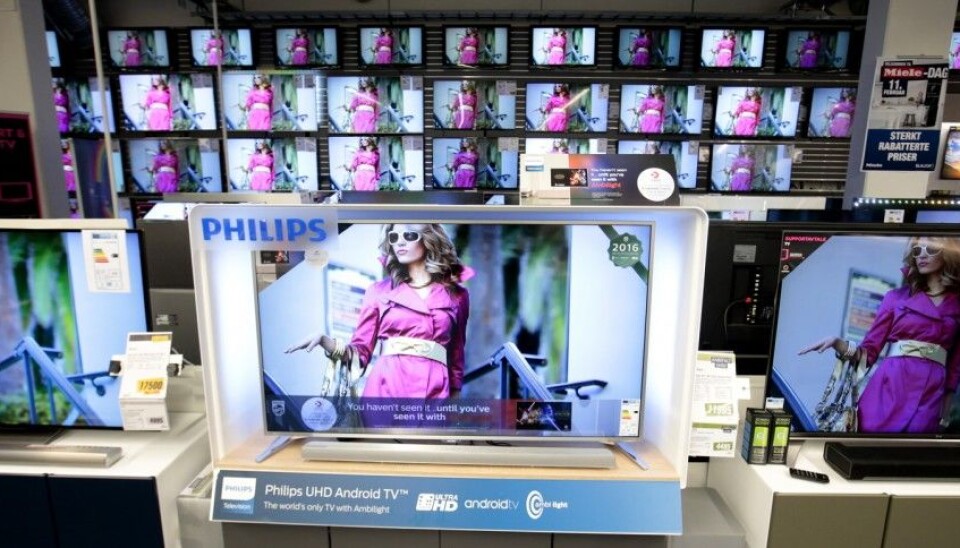
Forbidden products and fit personnel make us buy more
There are all kinds of psychological factors that drive us to shop. Well-trained, muscular clerks and goods on display that we cannot touch are two such ploys that make us open our wallets and buy more costly merchandise.
We consumers prefer to believe we buy products on the basis of rational and contemplated choices. But inside stores there are plenty of external factors playing in.
Studies have shown that the music, interior decoration and the smell of a store can manipulate us to buy things we hadn’t planned to go home with.
But scents, sounds and displays are not the only things that loosen our purse strings.
Psychologist Tobias Otterbring at Sweden’s Karlstad University has found that men in particular feel the urge to open their wallets and spend more in a store when their self-image is challenged.
Men particularly vulnerable
He researched how various psychological factors activate emotions linked to rivalry and discomfort, and how this impacts purchasing patterns and leads to more liberal consumption.
He registered how much money both men and women spent in a store. He found that the physical appearance of the store clerks actually plays a role in male customers’ consumption.
Otterbring writes on the Swedish website forskning.se. that men buy nearly twice as many costly status products than women if a muscular male store clerk is present.
In total they spend over twice as much as female consumers in the presence of a hunky male employee. The control group, exposed to a less attractive male clerk, spent less on status products.
Athletic clerks bring on the buying urge
The psychologist thinks this links in with men’s competitive instinct gain the upper hand against one another.
“Men who have caught eye of muscular men are more vulnerable toward buying products that signal their status in price or size, as they perceive the muscular man as a threat to their own status,” says Otterbring to forskning.se.
He found this applied in particular to male customers who were short or lacked other signs of physical dominance. This is because they feel their identity being threatened, according to Otterbring.
This did not apply to the women in the study. But other studies have demonstrated, for example, that women make the most purchases of new merchandise when they are in the most fertile period of their menstrual cycle.
The allure of forbidden fruit
Another study is about how we consumers are affected is our freedom to touch products in a store is constricted.
In the study the customers were allowed to look, but not touch, a particular item during a product demonstration inside the store.
This led to their touching many other wares after not being allowed to finger the product that had been demonstrated. They also ended up buying more merchandise, and items that were more high-priced. The same effect was not seen when they were allowed to touch the demonstrated product.
“The consumers compensate by doing almost anything they can to regain their control and freedom to do as they please. This results in their spending more money than they would have otherwise,” explains Otterbring.
This seems to reinforce another study, from the Norwegian School of Economics (NHH), showing that we are tempted to buy products that have yet to be released on the market.
Sex drive leads to buying chocolate
The doctoral study also shows that if consumers are exposed to photos of attractive faces of the opposite sex in the store environment, men in particular compensate by being more prone to buy immediately gratifying and delicious foods. They are more likely to buy a chocolate cake than a fruit salad.
This applied especially to men who felt they had little power or were physically inferior.
“We can say that when our self-control is disconnected in some way that ties in with sexual desire, we compensate buy obtaining something else good,” says Otterbring.
He thinks his findings are of interest not just for people in marketing, but also for consumers. We might have these in mind to become clearer about how we are swayed in a shopping situation.
Thomas Otterbring took his doctorate with these studies and works at Karlstad University’s Service Research Center.
-------------------------------------
Read the Norwegian version of this article at forskning.no
Translated by: Glenn Ostling









